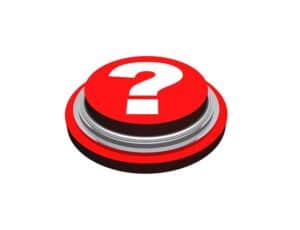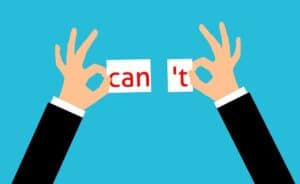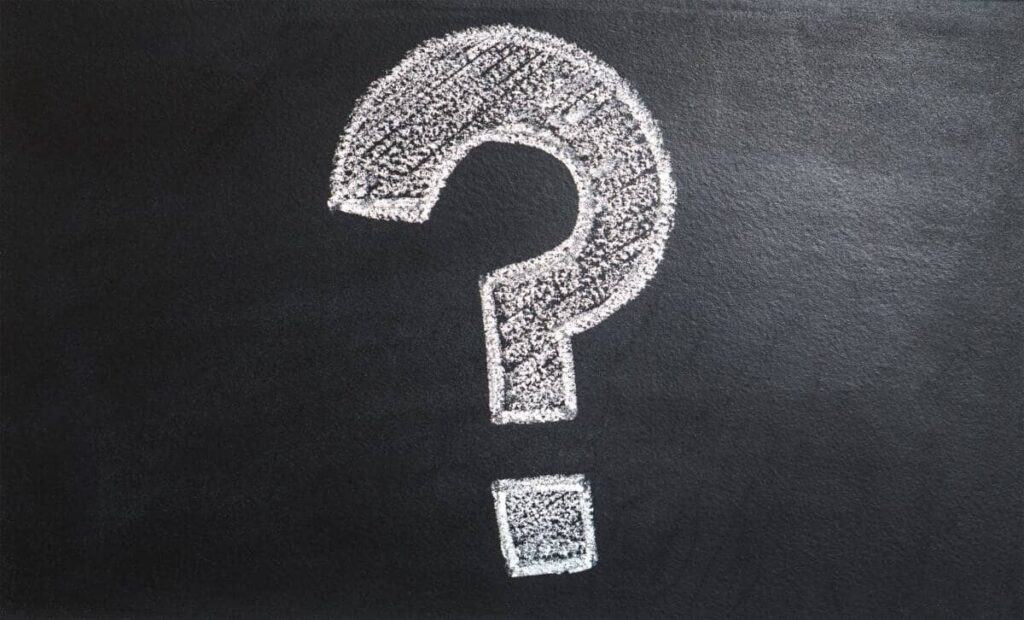What is the difference between can and could in English grammar?
A common problem English learners find is the difference between can and could in English grammar and meaning. In this article, we will look at how “can” and “could” are used: what is the same, what is different, and when we use each. We will also look at “would,” a word with a similar function to “can” and “could.”
The difference between can and could in English grammar
Examples:
Let’s look at different examples of natural English sentences. Each example will show the difference between can and could in English grammar, and we will discuss the meaning and nuance of each version.
Example 1:

- Can I borrow a pen?
- Could I borrow a pen?
- Would you lend me a pen?
So, what do you think is the difference in meaning between each sentence? Test yourself!
Match the sentence to its meaning in the activity below:

- Can I borrow a pen? i. requesting, politely.
- Could I borrow a pen? ii. asking permission, politely.
- Would you lend me a pen? iii. asking permission, casually
How did you do? Here are the answers!

- Can I borrow a pen? —> iii. asking permission, casually
- Could I borrow a pen? —> ii. asking permission, politely.
- Would you lend me a pen? —> i. requesting, politely.
That’s right! A key difference between can and could in English grammar is that both ask permission, but “could” is more polite. “Can I borrow a pen?” and “Could I borrow a pen?” have the same meaning, but one you should use with friends and one with acquaintances and in formal situations.

“Can I borrow a pen?” “Sure, here you go.”

“Could I borrow a pen?” “Of course. Here you are.”
“Would,” meanwhile, is very similar to “could” but is used to request the other person to take action.

“Would you lend me a pen?”
Example 2:
Can I get you a drink?
Could I get you a drink?
Would you like a drink?
In the three examples above, what do you think is the main difference between can and could in English grammar here? What happens when “would” is used?

- Can I get you a drink? i. offering to do something, politely.
- Could I get you a drink? ii. offering, politely.
- Would you like a drink? iii. offering, casually
How did you do? Here are the answers!

- Can I get you a drink? —> iii. offering to do something, casually
- Could I get you a drink? —> i. offering to do something, politely.
- Would you like a drink? —> ii. offering, politely.
That’s right! A key difference between can and could in English grammar is that both can be used to make an offer to do something, but “could” is more polite. “Can I get you a drink?” and “Could I get you a drink?” have the same meaning, but one you should use with friends and one with acquaintances and in formal situations.

“Can I get you a drink?”

“Could I get you a drink?”

“Would you like a drink?”
Example 3:
He can play football like a professional.
She could play football like a professional.
I would play football like a professional.
In these examples, what do you think is the difference in meaning between each sentence? Test yourself again on the difference between can and could in English grammar!

- He can play football like a professional. i. talking about current ability
- She could play football like a professional. ii. talking about past routines that have ended.
- I would play football like a professional. iii. talking about a past ability that is gone.
What do you think? Check out the answers below!

- He can play football like a professional. —-> i. talking about current ability
- She could play football like a professional. —-> iii. talking about a past ability that is gone.
- I would play football like a professional. —-> ii. talking about past routines that have ended.
That’s right! So, what is happening here?
In the first example, “He can play football like a professional,” can is used to talk about an ability the speaker currently possesses. This is the most basic function of the word “can,” and probably easy for a learner to understand.

“I can cook.”
“She can run fast.”
“He can sing well.”
“I can’t play piano.”
On the other hand, in the second example “She could play football like a professional,” could is used to talk about an ability the speaker had before, but does not have anymore.
“I could run fast, but then I broke my leg.”

“I could sing well, when I was younger.”
“His parents were very relaxed, so he could play videogames until late.”
“I wanted to be in a band, but I couldn’t play an instrument, so I played baseball instead.”
Finally, in the third example “I would play football like a professional,” would is used to talk about a routine the speaker used to follow, but doesn’t follow anymore. “Would” can describe past habits.
“As a child, I would wake up everyday at 5.30 and play with the dog.”
“At university, I would stay out all night and sleep during the day.”
“When I was a teenager I would read music magazines every day.”
“Before living abroad, I would believe the strangest things about foreign people.”
Example 4:

I can cook amazing dishes.
He could cook amazing dishes.
She would cook amazing dishes.
In the examples above, what do you think is the difference in meaning between each version? What is the difference between can and could in English grammar?

- I can cook amazing dishes. i. talking about current ability
- He could cook amazing dishes. ii. talking about past routines that have ended.
- She would cook amazing dishes. iii. talking about a past ability that is gone.
Have you finished? What do you think? Let’s check the answers below!

- I can cook amazing dishes. —-> i. talking about current ability
- He could cook amazing dishes. —-> iii. talking about a past ability that is gone.
- She would cook amazing dishes. —-> ii. talking about past routines that have ended.
How did you do? So, what is the difference between can and could in English grammar here?
In example 1, “I can cook amazing dishes,” can is again used to talk about an ability the speaker currently possesses. As we said before, this is a basic function of the word “can,” and easy for a learner to understand.

“They can’t find the restaurant.”
“She can speak 4 languages fluently.”
“I can play both guitar and piano.”
However, in example 2, “He could cook amazing dishes,” could is again used to talk about an ability the speaker had before, but does not have anymore. Maybe he ran out of ingredients, or forgot the recipes?

“When he was younger he could cook amazing dishes, but he stopped trying many years ago and has forgotten most of the skills he had.”
“I couldn’t remember my friend’s phone number, so I emailed him instead.”
“They saved and saved until they could afford their house, but the day after they bought it it burned down.”
And finally in example 3, “She would cook amazing dishes,” would is being used to talk about a routine or habit the speaker had in the past.
“When we lived together at university, she would cook amazing dishes for all of us.”
“When we had sleepovers, my friends and I would talk all night.”
“I remember, when we began working together his jokes would really annoy me, but after a couple of years I got used to them. He’s actually quite funny.”
Example 5:

When I was a child, I could play computer games all night.
As a child, I would play computer games all night.
What is the difference in these two sentences? You should already know, if you have looked at examples 3 and 4 above!
That’s right! Could is being used to describe a past ability, and would is being used to describe a past habit/routine. No problem! Can cannot be used to describe the past, so there is no example here.
Example 6:
I can tell you the answer, if you want.
She could tell you the answer, but she won’t.
I would tell you the answer, but then you won’t learn.
In these next three examples above, what do you think is the difference between can and could in English grammar here? What happens when “would” is used?

- I can tell you the answer, if you want. i. refusing to do something, with reason.
- She could tell you the answer, but she won’t. ii. offering to do something.
- I would tell you the answer, but then you won’t learn. iii. stating a possibility.
Are you ready? Compare with the answers below!

- I can tell you the answer, if you want. —-> ii. offering to do something.
- She could tell you the answer, but she won’t. —-> iii. stating a possibility.
- I would tell you the answer, but then you won’t learn. —-> i. refusing to do something, with reason.
Did you get them all correct? So, what is the difference between can and could in English grammar here?
In example 1, “I can tell you the answer, if you want,” the speaker is making an offer to do something. Other examples include:
“You need to be at the airport before 9? I can give you a lift if you need one.”
“I spoke to Richard, and he can meet you before the presentation if that will help you.”
“Are you thirsty? I can get you a drink.”
In example 2, “she could tell you the answer, but she won’t,” the speaker is simply stating a possibility. Here are some more examples:
“I could meet you at 9am, or 10am. Which is best?”
“They could move the meeting to Thursday, if Wednesday is too busy.”
“The restaurant could be open, but it might be closed. We should give them a phone call.”
Finally, in example 3 “I would tell you the answer, but then you won’t learn,” the speaker is actually refusing to do something politely, and with a good reason. Some more examples could be:
“Well, I would help you with your project, but I have to finish my own projects.”
“Stephanie said she would come to our party, but she already has plans.”
“I would lend you $50, but you still owe me $75 from the last time you asked me for money.”
Review with this video!
So, what is the difference between can and could in English grammar?

As we have seen, there are many differences between can and could in English, and the word “would” is also important! Let’s look at some of the key points we’ve learned:
Can
We use can to ask permission.
Also, we use can to make an offer to do something.
Furthermore, use can to talk about an ability the speaker currently possesses.
Finally, can cannot be used to describe the past. It is a present tense word.
Could
Could is also used to ask permission, but “could” is more polite than “can”.
Again, you can use could to make an offer to do something, but “could” is more polite than “can”.
You can even use could to talk about an ability the speaker had before, but does not have anymore.
It can also be used to talk about a past ability.
Lastly, could can also be used to state a possibility.
Would
Would is used to request another person to take action.
You can use would to talk about a routine the speaker used to follow, but doesn’t follow anymore.
And you can also use it to refuse to do something politely, and with a good reason.
These are some of the differences between can and could in English. You can find more examples all around the internet!
Learn more about English, and learn how to speak English confidently, with all our other articles on Denwa Sensei.
You can do it!



